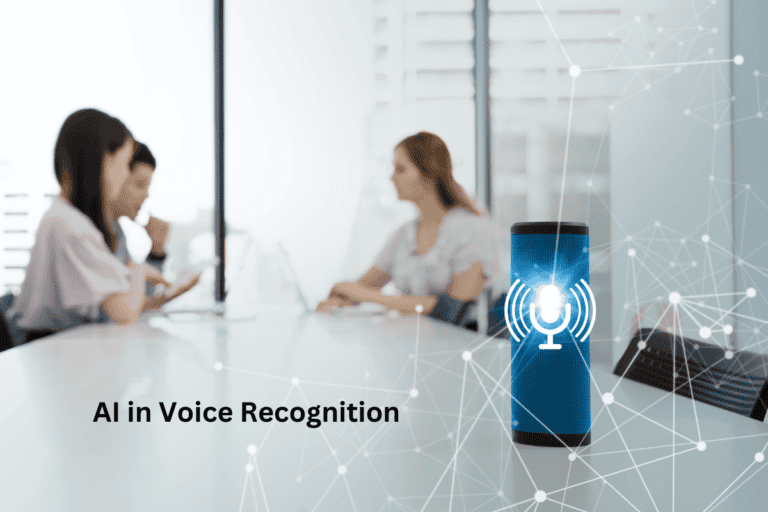The Psychology Behind AI-Assisted Personal Development
Imagine a digital companion that can unravel the depths of your psyche, guiding you towards self-discovery and personal growth. The integration of artificial intelligence in personal development tools opens up a world of possibilities, shedding light on the intricate workings of your mind.
Unraveling the complexities of human behavior through data-driven insights, AI offers a unique perspective on understanding yourself like never before. But how does this technology truly impact your journey towards self-improvement? Let's explore the fascinating intersection of psychology and AI in enhancing personal development strategies.
Key Takeaways
- AI provides deep insights into behavioral patterns for personalized growth strategies.
- Behavior analysis tools uncover emotional triggers and offer tailored behavior modification strategies.
- Predictive modeling techniques offer unprecedented insights into human responses for personalized recommendations.
- Personalized guidance celebrates achievements and supports individual progress effectively.
The Evolution of Personal Development Tools
The landscape of personal development tools has undergone a profound transformation with the integration of AI technology, revolutionizing the way individuals pursue growth and self-improvement. Evolutionary trends in personal development have been greatly influenced by technological advancements, leading to innovative approaches that cater to individual needs more effectively than ever before.
One of the evolutionary trends in personal development tools is the shift towards personalized recommendations based on AI algorithms. These algorithms analyze vast amounts of data to offer tailored suggestions for self-improvement, taking into account individual preferences, behaviors, and goals. This level of customization enhances the user experience and increases the likelihood of successful outcomes.
Technological advancements have enabled the integration of AI chatbots in personal development tools, providing users with instant feedback, guidance, and support. These chatbots simulate human-like interactions, creating a more engaging and interactive experience for individuals seeking personal growth. By leveraging AI technology, personal development tools have become more accessible, efficient, and impactful in empowering individuals to uncover their full potential.
Understanding Behavioral Patterns With AI
You can harness the power of AI to gain deep insights into your behavioral patterns.
By leveraging behavior analysis tools, AI can help you uncover hidden patterns and trends in your actions and decisions.
This data can then be used to create predictive models that offer personalized growth recommendations tailored to your unique needs and goals.
AI and Behavior Analysis
By harnessing the power of artificial intelligence, understanding behavioral patterns becomes more precise and insightful, revolutionizing the field of behavior analysis. AI can analyze vast amounts of data to uncover subtle patterns in behavior, providing valuable insights into emotional responses and triggers. This allows for a more nuanced understanding of how emotions influence behavior and decision-making processes.
Behavior modification techniques can be enhanced through AI, offering personalized strategies tailored to individual needs and preferences. Through continuous analysis and feedback, AI can help individuals develop self-awareness, identify patterns that may be hindering personal growth, and suggest targeted interventions to promote positive change.
- Uncovering subtle emotional triggers
- Personalized behavior modification strategies
- Continuous feedback for self-improvement
Predictive Modeling Techniques
Utilizing advanced predictive modeling techniques empowered by artificial intelligence offers unprecedented insights into human responses and decision-making processes. A deeper understanding of behavioral patterns emerges through data-driven insights, enabling AI to identify trends, correlations, and anomalies. Machine learning applications play a vital role in continuously improving predictive capabilities based on new data inputs.
These techniques not only help in predicting future behaviors but also aid in understanding the underlying reasons behind certain actions. By harnessing the power of predictive modeling and AI, individuals can gain valuable insights into their behaviors. This paves the way for personalized growth recommendations tailored to their unique characteristics and needs.
Personalized Growth Recommendations
Through AI-assisted analysis of behavioral patterns, personalized growth recommendations can be tailored to individual characteristics and needs, providing valuable insights for personal development. By leveraging advanced algorithms and machine learning, AI can offer customized suggestions that cater to your specific goals and preferences. These targeted recommendations not only highlight areas for improvement but also celebrate your achievements, fostering a sense of accomplishment and motivation for further growth. With AI's ability to understand your unique behavioral patterns, the recommendations presented are designed to support your individual progress effectively. This personalized approach guarantees that the guidance you receive isn't only relevant but also impactful, enhancing your journey towards personal development.
- AI analyzes your behaviors to offer tailored growth insights.
- Recommendations celebrate achievements and highlight areas for improvement.
- Personalized suggestions support individual progress effectively.
Cognitive Biases and Decision Making
When making decisions, your mind may unknowingly be influenced by cognitive biases, impacting the choices you make in various aspects of life.
Understanding these biases is important as they can lead you to make suboptimal decisions without even realizing it.
Bias in Choices
Understanding how cognitive biases influence decision-making processes is essential for developing effective strategies in personal development psychology. When it comes to bias in choices, it's important to recognize how implicit biases can impact your decision-making and shape your preferences without your conscious awareness.
Here are three key points to take into account:
- Hidden Influences: Unconscious biases can subtly steer your choices, leading you to make decisions that may not align with your true desires.
- Invisible Filters: Preferences can be filtered through unseen biases, affecting the options you perceive as viable and ultimately choose.
- Blind Spots: Recognizing these biases can help you uncover blind spots in your decision-making process, enabling you to make more informed and authentic choices.
Impact of Biases
Hidden biases wield significant influence over your decision-making processes, shaping your choices in ways that may not align with your true intentions or values. These unconscious influences can lead you to make decisions that aren't in your best interest.
Cognitive biases, such as confirmation bias or anchoring bias, can distort your judgment and affect your ability to objectively assess situations. Understanding how these biases impact your decision-making processes is critical for personal development.
Enhancing Self-Awareness Through Data
Utilizing advanced data analytics in personal development can greatly enhance self-awareness, providing individuals with valuable insights into their behaviors and thought patterns. Through data visualization techniques, such as graphs and charts, complex information about your habits and tendencies can be presented in a visually digestible format, making it easier for you to identify patterns and areas for improvement. Additionally, by integrating emotional intelligence metrics into the data analysis, AI tools can help you understand the underlying emotions driving your actions, allowing for a deeper level of self-reflection and awareness.
- Behavioral Trends: Analyzing data on your daily routines and interactions can reveal recurring patterns that may not be immediately apparent, shedding light on potential triggers or habits.
- Cognitive Biases: By examining decision-making processes through data, you can uncover unconscious biases that influence your choices, enabling you to make more informed and objective decisions.
- Emotion-Action Link: Connecting emotional responses to specific actions or events through data can help you recognize how your feelings impact your behaviors, fostering a heightened sense of self-awareness.
Motivation and Goal Setting Strategies
How can you effectively fuel your drive and set impactful goals in your personal development journey? When it comes to motivation and goal setting, understanding the balance between intrinsic motivation and external rewards is essential. While external rewards like praise or recognition can provide temporary boosts, intrinsic motivation – the internal drive stemming from personal values and passions – sustains long-term commitment. Combining these factors with a strategic approach to goal setting that includes both short-term goals and a clear long-term vision can amplify your success in personal growth.
| Intrinsic Motivation | External Rewards |
|---|---|
| Comes from within, tied to personal values and passions | External validation or tangible rewards |
| Long-lasting drive and commitment | Provides temporary boosts in motivation |
Overcoming Procrastination With AI
In exploring the field of personal development further, one intriguing application lies in harnessing AI to combat procrastination effectively. Procrastination often stems from a lack of effective time management and productivity skills. AI can assist by analyzing your work patterns and suggesting optimized schedules to enhance productivity. Additionally, incorporating AI-driven reminders and task prioritization features can help you stay focused and on track with your goals.
- Time Management Assistance: AI tools can provide personalized time management strategies based on your work habits and preferences, helping you allocate time efficiently.
- Productivity Tracking: AI algorithms can analyze your productivity levels over time, identifying patterns and suggesting ways to enhance your overall output.
- Motivational Prompts: Utilizing AI to send motivational messages or reminders can boost mindfulness and keep you motivated to tackle tasks promptly.
Building Resilience and Mental Strength
To cultivate resilience and mental strength effectively, you can engage in targeted practices that promote emotional fortitude and adaptive coping mechanisms. Building resilience involves developing the ability to bounce back from adversity and challenges, while mental strength entails maintaining a positive mindset and managing stress effectively. With AI-assisted growth, individuals can leverage technology to enhance their self-awareness and build strategies for overcoming obstacles.
One way to strengthen resilience is by practicing mindfulness and meditation, which can help you stay grounded and focused during difficult times. Moreover, setting realistic goals and breaking them down into manageable steps can boost your confidence and perseverance. Developing a support network of friends, family, or mentors can also provide encouragement and guidance when facing obstacles.
Additionally, honing mental strength involves reframing negative thoughts, practicing gratitude, and engaging in regular physical exercise to improve overall well-being. By integrating AI tools that track your progress and provide personalized feedback, you can enhance your self-awareness and make informed decisions to foster resilience and mental strength effectively.
Implications for Future Self-Improvement
Embracing AI-assisted tools in personal development psychology holds promising implications for future self-improvement endeavors. As technology evolves, the future implications of integrating AI into self-reflection techniques are vast and transformative. Here are three key points to contemplate:
- Enhanced Self-Awareness: AI can provide objective insights into your behavior patterns, helping you gain a deeper understanding of yourself. By analyzing vast amounts of data, AI can pinpoint areas for growth that may have gone unnoticed through traditional self-reflection techniques.
- Personalized Growth Strategies: AI algorithms can tailor self-improvement plans based on individual characteristics and goals. This personalized approach can lead to more effective and efficient self-improvement journeys, maximizing your potential for growth.
- Continuous Monitoring and Feedback: AI-powered tools can offer real-time feedback on your progress, allowing for adjustments and refinements along the way. This continuous monitoring guarantees that you stay on track towards your self-improvement objectives, fostering a sense of accountability and motivation.
Conclusion
As you explore the world of AI-assisted personal development, you'll discover a powerful ally in your journey towards self-improvement. With the ability to analyze behavioral patterns, overcome cognitive biases, and provide motivation, AI is revolutionizing how we enhance our mental strength and resilience.
The future of self-improvement is brighter than ever, with AI as your ultimate sidekick in achieving your wildest dreams. Embrace the possibilities and watch yourself soar to new heights!







